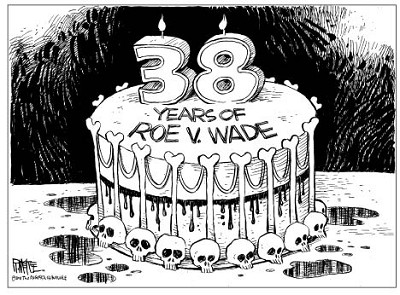Bringing A Bipartisan Perspective To A Most Partisan Activity, But Will They Listen?
Published 2:08 pm Thursday, February 10, 2011
Gov. Bob McDonnell deserves credit for creating the Independent Bipartisan Advisory Commission on Redistricting that will recommend redistricting plans to the General Assembly for the Commonwealth.
But will the General Assembly listen?
That is the big question and one wishes the governor had given his bipartisan redistricting committee some enforcement powers. Recommendations, alone, are like a breeze. The ship of state requires a steady wind.
Trending
Few activities are as political as redistricting, with whichever political party in power when the Census results come out each decade looking for ways to enhance their own position at the expense of the opposition party.
The House of Delegates districts are redrawn.
State Senate Districts, too.
And our Congressional districts.
All entirely based on the new Census results.
Theoretically.
Trending
Redistricting pranksmanship is a bipartisan activity, with Democrats and Republicans equally to blame through the years, so a bipartisan committee is very much needed.
Political districts are supposed to be “communities of interest” and “compact and contiguous.”
Yes, and the world, at one time, was supposed to be flat. “Supposed to be” isn't at all the same thing as “is.” The nation has known some spaghetti-noodled congressional districts in its time that were no more compact and contiguous than the silken strands of a spider's web.
District lines, for example, are sometimes redrawn to cut the incumbent out of his or her own district, if they are from the opposition party. Voila!
In one of Virginia's more famous instances of using redistricting to target the opposition, George Allen ran for governor in 1993 in no small measure because Democrats cut out his congressional seat in 1991. One day it was there, the next it was gone. So Mr. Allen was free to consider other political campaigns. Such can be the political karma of partisan redistricting and, again, both parties have proven themselves skillful with the redistricting knife to exact revenge or, in golfing terms, improve their lie, so to speak.
If the Fifth District lines around the less conservative Charlottesville area remain intact I would be greatly surprised. Expect Republicans to make that portion of the district more conducive to the reelection needs of Rep. Robert Hurt by adjusting those boundaries.
Redistricting can become so politically bizarre that revenge has occasionally been had by the political party in power against one of its own General Assembly members.
Gov. McDonnell has kept a campaign promise and one can only hope for the best while remaining alert for the worst. Our own communities have not been immune to earthshaking boundary changes, one of which saw our state senator hail from Tidewater in a new district that stretched from Appomattox, and its view of the Peaks Of Otter, to Hampton Roads. We were uncommonly lucky, then, to find the late Richard Holland representing us. Shortly after the new boundaries became law, Sen. Holland came to Farmville and promised that this community had his ear. Actually, this community had his heart, too.
But Senator Hollands are not common outcomes in all redistricting adjustments and it will do us all good to keep our eyes open, along with the lines of communication to the decision-makers.
The governor's stated intentions for his bipartisan commission are right on target.
“As Virginia redraws its legislative districts later this year, the process should take place in a manner that is fair and open. Legislative districts should be drawn in a way that reflects commonsense geographic boundaries and communities of interests as required by law. This Bipartisan Redistricting Commission will contribute to public involvement, openness, and fairness in the redistricting process,” Gov. McDonnell stated.
The 11-member committee is a good one, with an equal number of Republicans and Democrats, two former judges, one former federal judge nominated by a Republican president and one former state judge initially elected by a Democratic-led legislature and one independent chairman, Gov. McDonnell noted. The 11, he further elaborated, come from diverse backgrounds, as well: business, government service and academia.
Lieutenant Governor Bill Bolling was cheered by the commission's creation, saying, “I applaud Governor McDonnell for keeping our campaign promise to pursue bipartisan redistricting in Virginia. The goal of the redistricting process should be to form legislative districts that are compact, contiguous and share a common interest.”
The commission, Mr. Bolling continued, “will enable us to have at least one bipartisan perspective during the upcoming redistricting process to encourage that districts are drawn with the best interests of citizens in mind.”
It is a pity, however, that appointment by the governor of a special commission is necessary to achieve the goal of having at least one bipartisan perspective during the redistricting process.
Because his bipartisan commission can only make bipartisan recommendations and lend its bipartisan perspective to the proceedings, it may fall to Gov. McDonnell to personally and politically ensure that a truly bipartisan result is provided for the people of Virginia.
The commission is an excellent first step. The remainder of the journey will take us to the destination, however.
Let's hope we recognize our compact and contiguous community of interest at journey's end.
-JKW-






